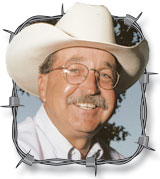Horses, horses everywhere.
Walking horses, Fox Trotters. Quarter horses. Standard breeds and hybrids of them all fill pastures from coast to coast these days.
There may be as many horses in the nation today as there was two hundred years ago. Once horses and their hybrids, mules, were the means of opening up the conquest of the United States.
If you had a good team of horses you could pack your wife and kids in the wagon, and go just about anywhere you and your family wanted to go. Without horses, this nation would never have been settled and developed.
Today, we do not use or even want to use horses, save the relatively few who use them for racing or rodeoing or other forms of recreation.
The wondrous horse, without which we could probably not have been able to conquer this nation!
And yet today, while we have as many horses in the nation as we ever had at the height of the “Horse Age,” we are not using much “real horse power.”
More’s the pity. I have Amish friends. They seem to be well off and happy – maybe happier – than we who today have no horses and are ringing our hands and cursing when we go to the pump and, stick a nozzle in the pump and say naughty words or at least grit our teeth and ask the guy at the next pump, “How did we ever get into this mess?”
More’s the pity. All we can do is to sometimes hunker down and try to remember the good old days.
Many of us cannot do this. They were born long after the “Horse Age” ended. And in cases like this, all we can do is grit our teeth and like it or perhaps if you are lucky enough to have children or neighbors, bum a ride with them or have them do your necessary shopping for you.
Then you sit down and lean back in your chair and begin to roll back the years that were good and filled with raising your own fuel and tell big windy tales.
Ah, how we cursed those stubborn beasts when we had to walk behind them, plowing. How we think we would like to return to those good old days.
Those horse kings and queens of the farms got the choice ears of corn, the fattest oats, the brightest timothy hay. A curry comb and brush were kept handy on a peg by the stall.
Can it be you could actually determine the character of a man by the appearance of the horses and his harness?
Of course. As we look back we seem to sense that men should be happy. You could tell which men in the community worked horses or mules by whether he worked horses or mules. The mule men were always busy, never had time to stop and chat or rest in the shade. The horse men were more relaxed, always ready to laugh or stop in the shade and tell a few tall tales.
The mule men did not have time for such foolishness. Get in the field and work like thunder and then get the work over with and do other chores.
At the feed mill you could always count on a good windy tale from a horse farmer. The mule man drove in with his wagon, unloaded his grain, loaded back up and scarcely took time to say howdy or so-long than he was trotting his team toward home.
The horse man walked his horses to the mill and walked back home. The mule man had no time for such foolishness. On examination, it did appear the mule men were a might more prosperous than the strictly horse man.
There were a lot of good things about working with horses instead of burning gas. You didn’t have to put forty gallons of gasoline in the engine. When you ended the day and broke down at the far end of the field, you could always unhitch and ride the horses back to the house. You could water them and unharness them, then watch them shake the dust out of their skin, roll over, run and have a good time because they were just as glad the day’s work was done as you were.
Sure they were slow, relatively unproductive in a way, and when tractors came in, millions and millions of forage and crops were freed to feed cattle and hogs and poultry. No one happened to think that fuel was going to become so expensive you could hardly afford to raise a crop anymore. And so horses faded from farm use by and large. Grass farming – grazing cattle – is more popular today, save for my Amish friends, and I think they may have the better end of the bargain, what with $4 a gallon tractor fuel.
And more is the pity. There is little given for them, or at least the masses of them, and there's a strong market for horse meat for human consumption.
Eating horse meat has never been popular in U.S. but there are millions of people in European nations that consider it a delicacy, so massive shipments of horse meat are sent abroad.
Will they all be gone someday? I read somewhere that there are so many horses in the U.S. today that barring the all-out slaughter of horses, the market overseas will never be saturated.
But never is a long, long time.
Long live horses.






